Every Nigerian citizen will always cherish understanding historical events in Nigeria, how it all started and why we are here today. This is why we have compiled a comprehensive list of all Nigerian leaders from 1960 till date for you.
Sir Abubakar Tafawa
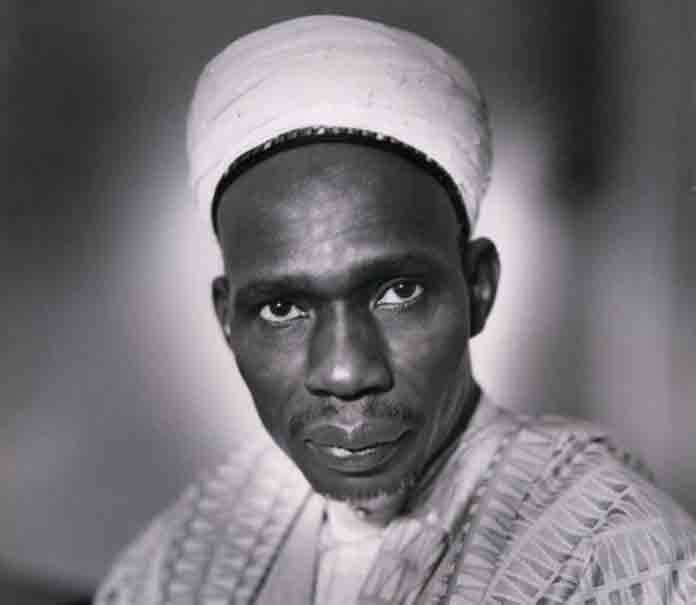
Today is independence day, this is the exact first word of Sir Abubakar Tafawa Belewa as he passionately read out Nigeria’s historic independent day speech. His words were of great significance, it was the heralding of a new dawn. After decades of colonial rule the British Crown had finally relinquished authority to Nigeria.
Sir Abubakar Tafawa alongside Queen Elizabeth II then ruled Nigeria as the first prime minister until 1963 when Nigeria became a Republic. It was not until 3 years later in 1963 that Nigeria had her first democratically elected head of State. Up to now, Nigeria has had a total of 15 leaders.
Names and photos of all Nigerian Heads of States from 1960 to 2019
If you were not aware, Queen Elizabeth II was the head of state in Nigeria and was also the Queen of Nigeria before the Nigeria’s independence in 1960. From those who ascended through the ballot to those who clinched the position through the barrel, here is a list of all presidents of Nigeria since independence.
1. Chief Dr Benjamin Nnamdi Azikiwe (1963 to 1966)
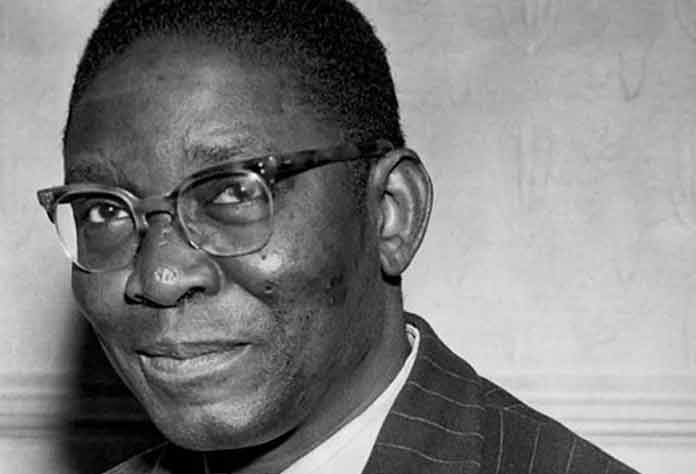
Fondly called “the great Zik of Africa”, Chief Dr Benjamin Nnamdi Azikiwe was the first president of a newly Independent Nigeria. Azikiwe an Ibo by ethnicity was born in the Northern city of Zungeru and unlike some of his peers spoke the three major language of Ibo, Hausa and Yoruba fluently.
Before venturing into politics, Azikiwe was widely regarded as a true bred nationalist. This image was pivotal in helping him maintain a perception of fairness later in government. Alongside Herbert Macaulay, he co-founded the National Council of Nigeria and Cameroon and was previously an active member of the Nigerian Youth Movement (NYM).
One of his greatest achievements was the promulgation of the 1963 Constitution of the Federal Republic of Nigeria. He was also a successful journalist with over 12 different African newspapers under his belt. He served as president until he was ousted in a coup.
2. Major General Johnson Thomas Aguiyi-Ironsi (January 1966 to July 1966)
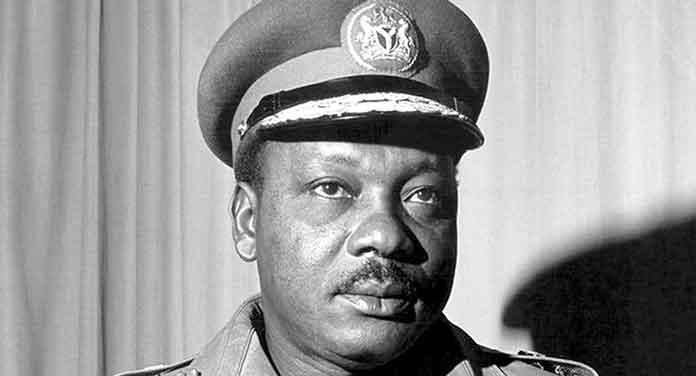
Aguiyi-Ironsi had unarguably one of the briefest tenure as president, ruling for only 194 days – second only to Ernest Shonekan’s 83 days in office. Gen Aguiyi-Ironsi was an Ibo by Ethnicity and was Nigeria’s First military head of state. He had joined the army at a young age of 18 and served the Nigerian army for 42 years. After several promotions, he was appointed at the commandant of the entire UN peace keeping forces in the Congo in 1964. He was subsequently promoted to the exalted rank of major general, becoming the first Nigerian army officer to become a general officer Commanding, GOC of the entire Nigerian Army.
Before becoming president, Aguiyi-Ironsi had become very popular courtesy of the Legend of the Crocodile Mascot. The legend had it that Aguiyi-Ironsi had a swagger staff engraved with a crocodile mascot which made him invulnerable and that it was used to deflect bullets when he commanded a UN peacekeeping mission in Congo.
Aguiyi-Ironsi became head of state by seizing power during the ensuing chaos of the 15 January 1966 military coup d’etat. He served as the Head of state until he was ousted in a counter coup in July by mutinous northern army officers.
3. General Yakubu Dan-Yumma Gowon (1966 to 1975)
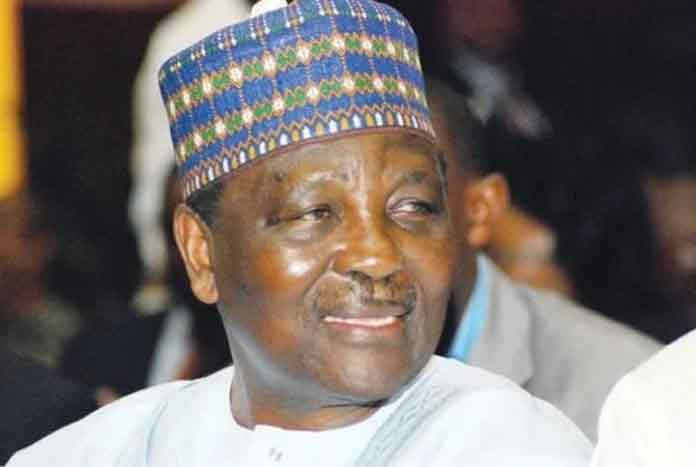 General Yakubu Gowon came to power through the coup d’etat and left through coup d’etat. Born in 19 October 1934, he was an indigene of law, a small village in present day plateau state. He joined the Nigerian army in 1954 and was commissioned a second lieutenant at the young age of 21. His administration was mired by the devastating effects of the Nigerian civil war.
General Yakubu Gowon came to power through the coup d’etat and left through coup d’etat. Born in 19 October 1934, he was an indigene of law, a small village in present day plateau state. He joined the Nigerian army in 1954 and was commissioned a second lieutenant at the young age of 21. His administration was mired by the devastating effects of the Nigerian civil war.
Though he is usually credited with being pivotal in the reconstruction and reconciliation of the country after the civil war, he committed political flops during his administration.
One of his greatest dangles in power was his indigenization decree of 1972. The controversial degree effectively placed an economic embargo on foreign investment in some sectors of the Nigerian economy. Among his other political miscalculations were his refusal to transit to civilian rule and the cement Armada of 1975. The cement Armada occurred when his government ordered 20 million tons of cement to be delivered at the Lagos port which had capacity to handle only one million tons yearly. Lagos port was then inaccessible to ships with basic commodities due to an endless cluster of hundreds of ships waiting to offload cement.
4. General Murtala Rufai Ramat Mohammed (1975 to 1976)
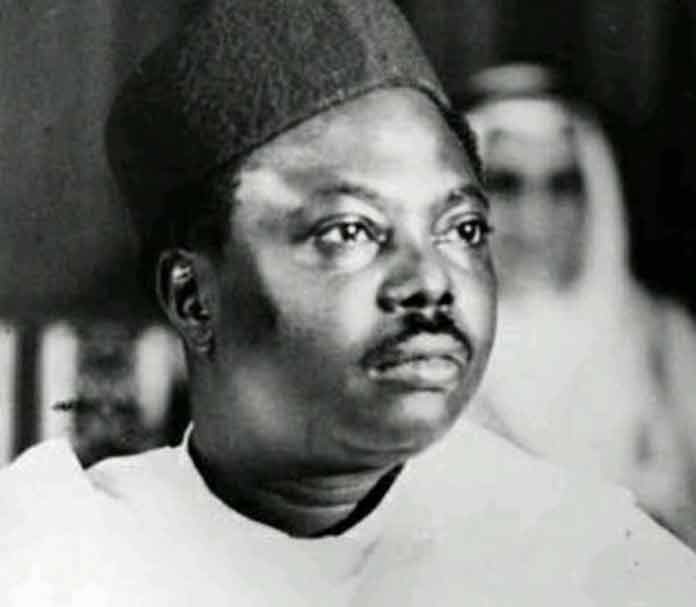
Like most Nigerian leaders of his time, General Murtala Mohammed came to power through a coup d’etat. Coup plotters overthrew the then Head of State, Yakubu Gowon while attending an OAU submit in distant Kampala on 29 July 1975, subsequently announcing Murtala Mohammed as the new military ruler.
He was the Head of the Federal Military Government from 1975 until his assassination in 1976. Spending a total of only 200 days, he took series of decision, considered one of the most important decisions of any previous governments and was subsequently christened a national Hero. He is credited with instituting plans to relocate the capital territory from then overcrowded Lagos to Abuja. He also created seven more states in February 1976 including Bauchi, Benue, Borno, Imo, Niger, Ogun, and Ondo.
Though simple and humble, Murtala Mohammed was a vocal critic of the South African apartheid regime and a thorn in the flesh of the West. He is infamously credited with calling out the West during an OAU submit while re-echoing his favourite line “Africa will no more take orders from any country….no matter how powerful”. On Friday 13 February 1976 he was killed at the age of 37, along with his Aide-De-Camp, Lieutenant Akintunde Akinsehinwa.
5. General Olusegun Mathew Okikiola Aremu Obasanjo (1976 to 1979)
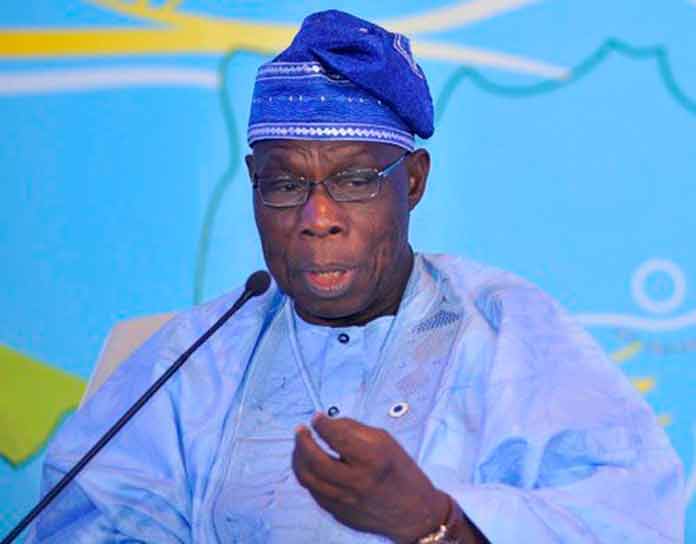
Olusegun Obasanjo fondly called “OBJ” was a career soldier and 5th head of state of the Federal Republic of Nigeria. He was born in Abeokuta, under then Western Region in British Nigeria. As a soldier, he saw action during the Nigerian civil war and during the Congo crisis, as part of Nigeria’s peace enforcement forces.
He has infamously married 4 times, with two divorced and two deceased wives and about 20 children. He first made a serious of entry into politics when then head of state, General Yakubu Gowon, made Obasanjo the Federal commissioner for works and housing in January 1975.
One of his greatest achievements was heralding the transfer of power to the first elected civilian president of Nigeria. He resigned from politics and as head of state handed over power to Shehu Shagari. Obasanjo’s tenure saw the resurgence of Industrialisation previously halted due to the effects of the Nigerian civil war.
6. Shehu Usman Aliyu Shagari (1979 to 1983)
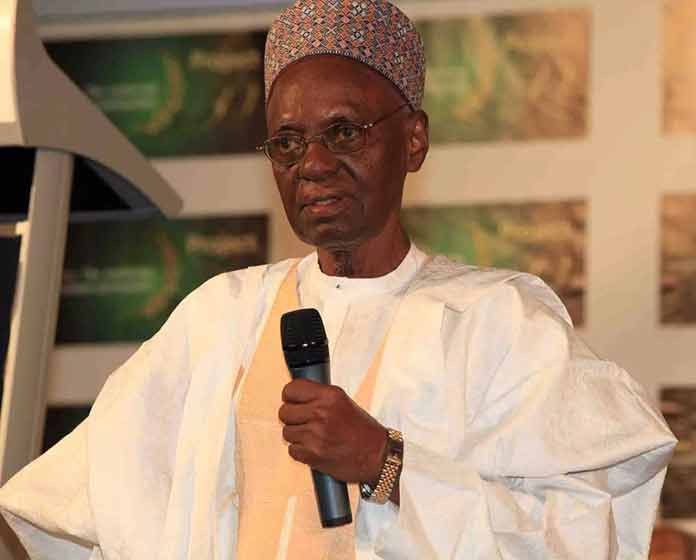
Shehu Shagari was the first president of Nigeria’s second republic after General Olusegun Obasanjo fulfilled his promise of handing power over to a civilian government . He was born on February 25, 1925 in the Shagari village of Sokoto State, in then Nigeria Protectorate.
Shagari, formerly a teacher was a very successful politician serving seven times in a ministerial or cabinet post as a federal minister and federal commissioner between 1958 to1975. In 1978 Shagari was pivotal in the formation of the National Party of Nigeria and was later adopted as the party’s presidential candidate. He received widespread support from the North and a huge following among Southern Minorities. He subsequently contested and won the elections.
Shagari was also instrumental in the re-enforcement of Nigeria’s industrialisation drive. He is credited with the building of the Kaduna refinery, construction of a steel plant and three rolling mills at Ajaokuta and the establishment of the Aluminum Smelter Company of Nigeria at Ikot Abasi.
Shehu Shagari ran for a second four-year term in 1983 and won, only to be ousted unceremoniously in a coup on 31 December 1983 by General Muhammadu Buhari.
7. Major General Muhammadu Buhari (1983 to 1985)
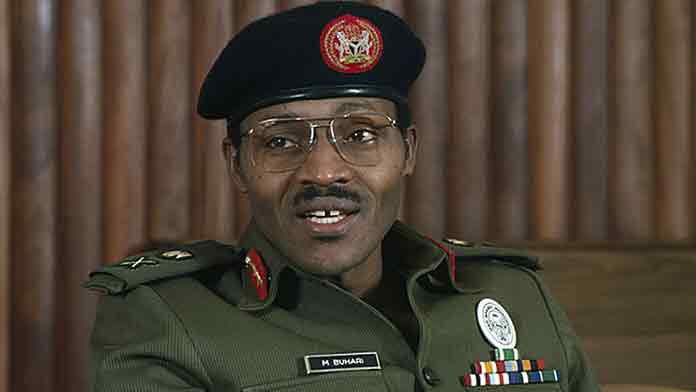
After overthrowing the civilian government of Shehu Shagari, Buhari immediately enforced some very controversial new laws.
Born on 17 December 1942 to Fulani parents in Duara, Katsina State, Buhari lost his father at the tender age of four. He joined the Nigerian army at the age of 19, serving for a total of 24 years. Buhari is most remembered for a strict campaign against indiscipline and corruption. He was considered a “no nonsense totalitarian.”
Under his administration, civil servants had to do jump squats for showing up at work late while soldiers forced civilians to form neat queues at public transport stations. His signature programme was the much dreaded “war against indiscipline.”
Like his predecessor, Buhari’s 20 month reign was brought to an end after being ousted in a coup led by General Ibrahim Babangida in 1985.
8. General Ibrahim Gbadamosi Babangida (1985 to 1993)
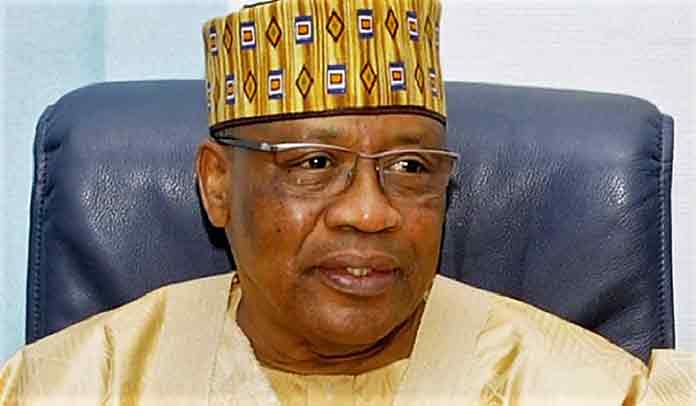
Born on 17 August 1941 in Minna, Niger State, General Babangida attended the prestigious government college Bida. He later joined the Nigerian army in 1962, serving his country for 31 years.
Babangida is infamously known for cancelling the June 12 1993 elections where Moshood Kashimawo Abiola (MKO) was widely adjudged to have won. His administration’s image was also tainted with reports of widespread human rights abuses.
However, he is also credited with finally executing the plan to relocate the seat of federal government from Lagos to Abuja. He was pressurized to resign and cede control to a democratic government.
9. Chief Ernest Adegunle Oladeinde Shonekan (August 1993 to November 1993)
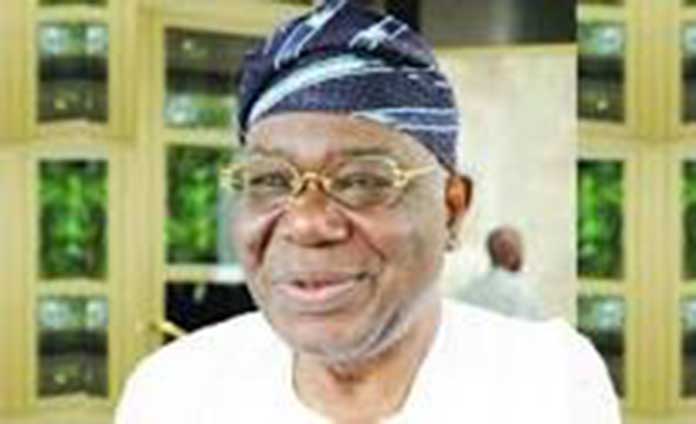
Born on 9th may 1936, Ernest Shonekan was appointed as interim president of Nigeria by General Ibrahim Babangida before resigning in 1993. He was brought up in Lagos, the then Nigerian capital.
He was an experienced businessman with a large network of alliances and was generally considered politically neutral. His neutrality and experience was what made Babangida appoint him an interim leader.
During the 3 months of his administration, he laid plans for the return of democracy and the withdrawal of Nigerian troops from the peace keeping mission in Liberia. He is also credited with releasing political prisoners detained by the Ibrahim Babangida administration.
Because of his perceived weakness in control of the military, General Sani Abacha, then defence secretary led a palace coup to oust Shonekan.
10. General Sani Abacha (1993 to 1998)
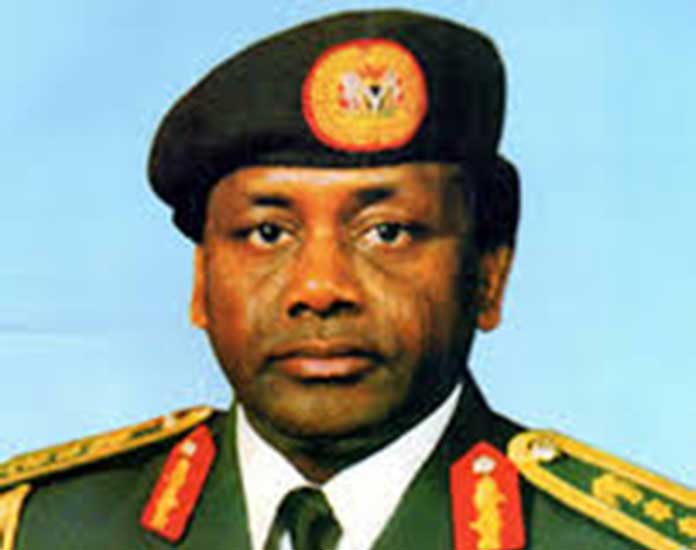
General Sani Abacha is unarguably one of the most controversial Nigerian leaders in history. Born on 20th September 1943 in Kano State, he served in the military from 1963 to 1998 after attending the Nigerian Military Training College and Mons Officer Cadet School.
Abacha is infamously hailed as the successful coup plotter in the history of the Nigerian Military. He has planned and executed more coup than any Nigerian dead or alive.
After seizing power on 17 November 1993, Abacha subsequently issued a decree that placed his government above the jurisdiction of the Nigerian courts, effectively granting himself absolute power. His administration was engulfed in an unprecedented scale of corruption and human right abuses.
Nonetheless, he still managed to record an unprecedented levels of economic achievement while oil was selling at around $15 per barrel.
11. General Abdulsalami Abubakar (1998 to 1999)
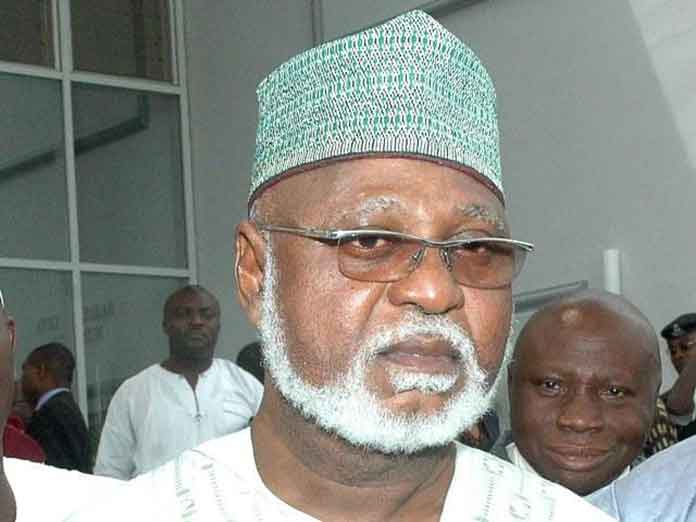
Born on 13th June 1942, General Abdulsalam Abubakar attended the Kaduna Technical College before joining the Nigerian Military. He served for 3 years in the Nigerian Air Force and 33 years with the Nigerian army.
Abdulsalam made the best out of his short time as interim military ruler scoring a handful of significant achievement. One of his greatest achievement is the establishment of the Independent National Electoral Commission (INEC) and subsequent transfer of power to civilian government.
Abdulsalam Abubakar has over 12 prestigious awards and medals to his name.
12. Chief Olusegun Mathew Okikiola Aremu Obasanjo (1999 to 2007)
After ruling from 1976 to 1979 as a military head of state, Olusegun Obasanjo staged a major political comeback by emerging as the presidential candidate of the People’s Democratic Party ( PDP). He subsequently contested and defeated Olu Falae, the joint candidate of the All Peoples Party, APP, and the Alliance for Democracy, AD.
He is credited with increasing Nigeria’s foreign reserves from $2 billion in 1999 to $43 billion on leaving office in 2007. He was also responsible for securing debt relief from the Paris and London club amounting to some $18 billion and paid off another $18 billion of the remaining debt.
Obasanjo also ran for second term under the umbrella of the PDP, this time winning with a jaw dropping margin of 11 million votes. He is often criticized for signing the Greentree Agreement which saw the ceding of the disputed Bakassi peninsula to Cameroon.
13. Umaru Musa Yar’Adua (2007 to 2010)
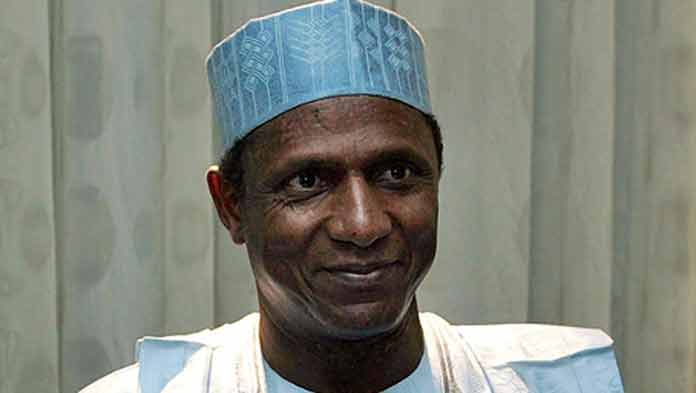
Umaru Musa Yar’Adua contested and won the Nigerian presidential election in 2007 under the umbrella of the PDP. He emerged as the party’s favorite after then president Obasanjo failed to modify the constitution to allow for his third term ambition.
Yar’Adua was the first governor and subsequently first Nigerian president to make a public declaration of assets. His administration was marred by rumors of his illness and inability to discharge his duties. He battled with pericarditis, an inflammation of the pericardium throughout his rule as president.
He, however, was able to score some political point from critical reforms and anti-corruption policies. He traveled to Saudi Arabia for treatment in November 2009, returning subsequently to his death on 5th May 2010 at the Aso Rock Presidential Villa.
14. Goodluck Ebele Azikiwe Jonathan (2010 to 2015)
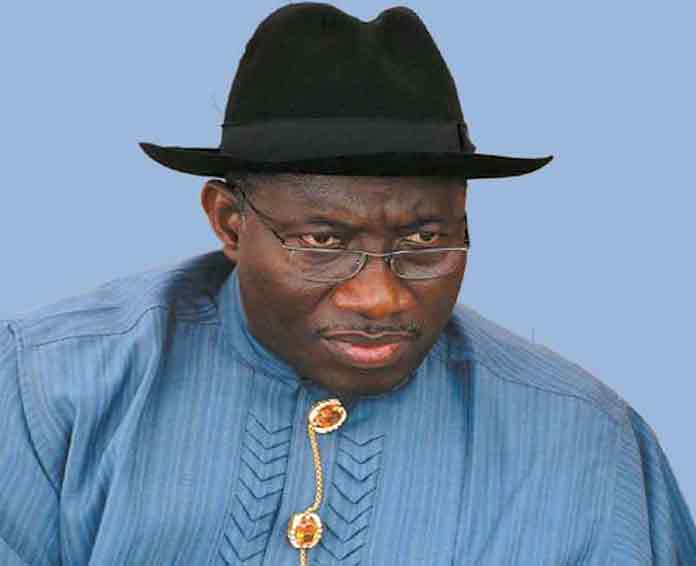
Goodluck Jonathan’s rise to power is always attributed by many to sheer “Goodluck.” Series of favorable political events propelled him to the position of state governor and then president.
On 10th February 2010, Nigerian parliamentarians controversially invoked the “doctrine of necessity” to transfer presidential powers to Goodluck Jonathan, then vice president under Yar’Adua effectively declaring him Acting President. Prior to this Goodluck Jonathan wasn’t a major player in the national scene. However, the parliaments perceived approval gave him confidence to subsequently contest for and win the 2011 presidential election.
Goodluck Jonathan’s administration was engulfed in series of unfavourable political events including the deadly Boko Haram insurgency. His administration however succeeded to contain the insurgency towards the end of his administration.
He lost the 2015 presidential election becoming the first incumbent Nigerian leader to lose and election and publicly accept defeat.
15. Muhammadu Buhari (2015 to present)
A military dictator turned democrat, president Buhari staged an Abraham Lincoln style comeback to the presidency by defeating Goodluck Jonathan in the 2015 presidential election. He had previously contested and lost miserably for three times before emerging as the candidate of the APC – a coalition of several opposition parties.
He clinched historic victory in the March 28 election, effectively becoming the first opposition candidate to defeat an incumbent president.
To distance himself from his dictatorial past, Buhari has stripped his “Major General” title from his name, preferring to be addressed as just Muhammadu Buhari. He however still strongly believes his decision to oust the civilian government of Alhaji Shehu Shagari was best for the country.
His administration is still trying to eradicate previously contained Boko Haram amid several economic woes.
Before becoming president, Former president Olusegun Obasanjo said He “would not be a good economic manager, but however will be a strong, almost inflexible, and a courageous and firm leader”.
Leaders who ruled for years, others for months and those who ruled for days. Those on the good side of history and those on the dark side of brutal dictatorship and economic turmoil. The 2019 election on February will decide who comes up next on our list.
Summary of list of Nigerian Presidents from 1960 To Date
Nigeria has had numerous presidents from diverse ethnic groups with different character strength and personalities. There is no benchmark to pronounce the best leadership Nigeria has ever had but you can gauge the impact of each government on the citizenry.
Apparently, there are ups and downs that characterise each administration in power over these years.
